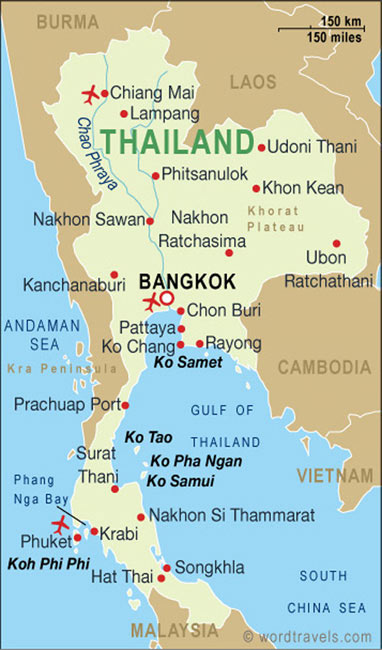Thai culture is so unbelievably different than American culture. There are so many differences. All these differences can be broken down into one huge underlying reason. Thailand is a high context culture and the US is a low context culture. Most of the differences are a result of this. For those of you who have no idea what I'm talking about....allow me to explain.
High context cultures derive meanings of things from the context in which the communication is taking place. Low context cultures derive meaning from the message it self. Those are basic definitions but the real interesting parts of this are more practical.
The classes I am taking here require very little work...actually. Which is quite nice. But the one piece of homework I've had recently required me to read a chapter in a book about intercultural communication. It was for my internship seminar. I found it so interesting. It broke down the low-context vs high-context culture on an easy to understand comparison chart.
The first thing it discussed was the issue of time. Time is a huge deal in the US. As you all know, Americans are always in a hurry or on a schedule and trying to fit as much into each day as possible. It is completely the opposite here. Time doesn't matter much to the Thai people. Plans change last minute and it's all no big deal. One of the reasons Thai people are so relaxed about time is that they figure if they can't fit it into this life, they can do it in the next life. Buddhists believe in re-birth. For Christians, we only live this 1 life. We have one chance to get it right. Buddhists believe they have many chances.
Another comparison this chart made was in the way our two cultures reason things out. Asian cultures feel that knowledge is gained through intuition, spiral logic and contemplation. They place a high importance on feelings. While cultures like the US or some European nations place a high importance on words and feel that knowledge is gained through analytical reasons. I just found this to be interesting. And it makes sense when I think about the Buddhist culture. Buddhism places a huge importance on meditation and contemplation. They believe that in order to move up in the next life and get closer to "nirvana" which is their heaven, they must meditate and contemplate life. "Enlightened" people, such as the Buddha spent/spend a lot of time thinking and figuring out suffering. In contrast to American culture, we do not spend a lot of time thinking. We are human "doings" as opposed to Thai people who try to be human "beings". It's a very different way of thinking and living.
Verbal communication is also a major difference in Thailand. Asian cultures....high context cultures... stress being polite and keeping harmony while communicating. Often times they are indirect and will not express exactly how they are feeling. This means that when talking with them you must learn to read their non-verbal cues. Also....one thing we learned when we first moved into our Thai families is the idea of lying to preserve the relationship. This means that if we asked them what they thought of a super ugly dress, they will say it's lovely because they wouldn't want to offend us. Or if we asked them about something, they would give us the answer that they think we would want to hear, even if that's not really the truth. They feel it is better to preserve the relationship and not offend anyone so they will take measures to prevent problems. They are also not confrontational. As an American, I like directness. I do not like beating around the bush. I feel like we should just get to the point. That is so not the case here. Beating around the bush is a commonality. Another major difference in my book.
Yet another difference in these two cultures is social roles. Thai people, and other high context cultures place a emphasis on the group, not the individual. In the States we spend a lot of time encouraging people to be an individual. Not the case here. Students in my English classes color pictures similarly with similar colors. In the US, students would be encouraged against this. But here it is important to be a part of the group.
Along the lines of social structure is how people respond to their place in society. If you are a university student, you dress like one....all the time. If you are a professor, you dress like one. You are expected to dress your position. It would be wrong and unacceptable to not dress for place in society. For this reason, students, regardless of whether they have class or not, will dress in their uniform. There is a level of respect for the position you hold in society and if you dress for your position, you will be respected.
Well, that's all for MK's cultural insights for now! Hope you understand Thai culture a little better and can understand how radically different it is from the US.
Friday, February 12, 2010
Subscribe to:
Post Comments (Atom)



Unbelievable, Mary Kate. I can't wait to hear more of this when you get home. Love you and miss you!!
ReplyDeleteVery enlightening! Hard to believe two cultures can be so vastly different. But I'm with you - I'm all about being direct. No need to beat around the bush. What does that do? Make someone look ugly in their ugly dress when we could have helped them look cute all along...right?! :)
ReplyDeleteDad asks: If the Thai people place a huge importance on emotions, why will they not express them then?
ReplyDelete